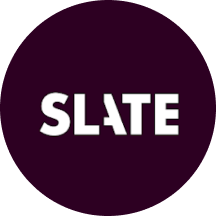The factory floor used to roar.
Walking around his textile mill in southern Buenos Aires, Luciano Galfione points out the up-to-the-minute machines that once whirred and clattered.
Some 200 employees churned out fabric to be transformed into athleisure and other apparel for Argentina’s famously vast middle class.
But as he walked around the factory, it was so quiet that Galfione's footsteps rang clear through the compound.
Just a handful of workers the Galfione Group factory in Argentina’s capital spooled yarn and dyed cloth.
Libertarian President Javier Milei stormed to power on a promise to rescue the crisis-stricken economy through harsh austerity and free-market reforms.
But almost two years later, falling orders and surging competition have forced Galfione to cut operations by 80%, lay off a quarter of his workforce and drain his own savings to keep his family's 75-year-old textile company afloat.
Those without financial resources to tide them over have simply closed their doors.
Over 17,600 businesses — among them 1,800 manufacturers and 380 textile companies — have folded in the last year and a half, according to Fundación Pro Tejer, a non-profit representing textile manufacturers.
The textile industry is grappling with higher import and tax costs for raw materials, driving up prices for local products.
At the same time, the government’s decision to loosen import restrictions has opened the door to cheaper foreign goods.
Chinese e-commerce platforms such as Temu and Shein now offer clothing at prices far below those of domestic manufacturers, leaving local producers struggling to compete.
Meanwhile, deregulation in hiring and firing practices has prompted factories and companies to carry out mass layoffs.
They often retain only essential workers who are later tasked with training new hires at lower wages and with reduced tax burdens for employers.
As the nation heads to midterm elections widely seen as a referendum on Milei’s policies, Galfione’s troubles reflect bigger shocks jolting Argentina.
The economy is sputtering.
Cheap foreign imports have gutted local manufacturing, shedding jobs.
Spending has stumbled, squeezed by higher unemployment and lower wages.
Financial markets are in turmoil, particularly after Milei’s party suffered a humiliating defeat in a regional election that triggered a sharp peso sell-off and sent officials scrambling to secure $20 billion in financing from a friendly Trump administration.
President Donald Trump sees a kindred spirit and fellow culture warrior in Argentina's chainsaw wielding leader.
But he rattled Argentines and Americans alike on Tuesday by saying the $20 billion assistance would be contingent on Milei's success in the Oct. 26 legislative elections.
Over a year ago, markets cheered as Milei fulfilled his flagship promise to reduce the runway inflation that he inherited from his populist predecessors.
Many Argentines — who had grown accustomed to shops revising prices upwards everyday — hailed his program as a miraculous outbreak of normalcy in a notoriously topsy-turvy economy.
But today, price stability is old news as Argentines contend with a lengthening list of worries.
And as they shell out more money for bus fares and electricity, poor and middle-class households are cutting back on all but essential spending, and retailers are on the front line of the consumer bust.
On Wednesday, another potential lifeline was announced by the U.S. treasury secretary, who said the administration was looking to provide an additional $20 billion for Argentina through a mix of financing from sovereign funds and the private sector.
He called it “a private-sector solution” and said "many banks... and many sovereign funds" had expressed interest.
AP Video shot by Cristian Kovadloff

 Associated Press Elections
Associated Press Elections
 AlterNet
AlterNet Esquire
Esquire Slate Politics
Slate Politics